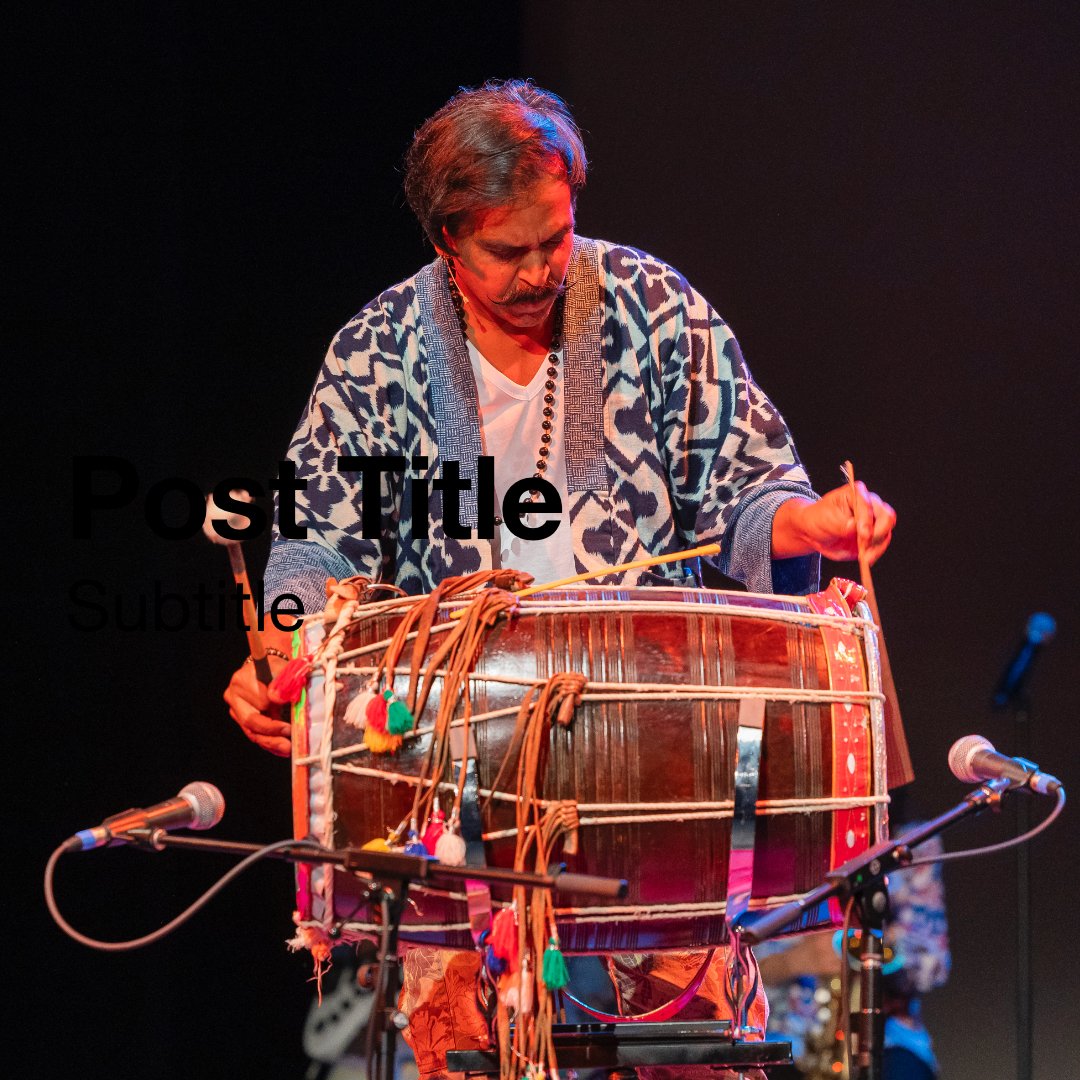
Love Force
In his first theatrical production, Sunny Jain brings his signature talent for creating immediate community, blurring the lines between performers and audience. Love Force draws on Jain’s autobiography and family history to dive into the concept of satyāgraha (which means “insistence or holding firmly to truth”). Coined by Mahatma Gandhi during his nonviolent protest against British colonialism in India, and also adapted by B.R. Ambedkar and Martin Luther King Jr. as “soul force” and “love force,” satyāgraha is both a theory and a method of enveloping the oppressor with compassion.
Music meets storytelling as Jain takes audiences on a deeply personal journey that questions hierarchical systems, religion, and traditions, reflecting on the multiple identities so many immigrant families confront in the process of staying connected to the past and imagining new futures. Combining baraat music (South Asian wedding processionals) which Jain first encountered at an early age, Bollywood classics recalled from his youth in Rochester, New York, and his training in the Black American jazz tradition (with teachers such as Kenny Barron, Ted Dunbar and Michael Carvin)—the sounds of Love Force reflect the multiplicity of Jain’s own identities, creating a resonance between these rhythms that perhaps escapes words alone. In doing so, it makes vibrant the power of music to bring unity to audiences—a power of “collective effervescence” that may be essential in confronting these ongoing systems of oppression.¹
Each element of Love Force is carefully crafted for frequencies, rhythm, and vibrations, creating a powerful ritual of gathering through song and story. Love Force was in development at Wesleyan University in Middletown, CT (2023-24). PrevIous support includes Joe’s Pub’s New York Voices program (2022), New York State Council on the Arts (2022) and MAP Fund (2021).
“Collective effervescene” is a concept borrowed from French sociologist Émile Durkheim’s study of religion, The Elementary Forms of Religious Life, first published in 1912. Though Durkheim coins the concept to refer to the transcendent, almost delirious, state induced by religious assemblies—his text provides little explanation of this phenomenon, almost as though the experience itself exceeds any description language could provide.
Creative Team
Created and conceived by Sunny Jain
Directed and Developed by Katie Pearl
Original Lighting & Projection Design by Courtney Gaston
Love Force Musical Ensemble
Sunny Jain (dhol, drumset), Alison Shearer (alto saxophone), David Adewumi (trumpet), Armando Vergara (trombone), Julia Chen (keyboards, percussion), Almog Sharvit (bass, percussion).
Production Development & Support
Love Force was in development at Wesleyan University in Middletown, CT (2023-24).
Previous support includes Joe’s Pub’s New York Voices program, New York State Council on the Arts, and a MAP Fund award.
